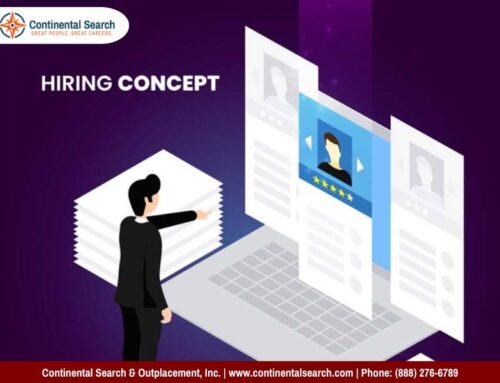In my 20 years as a recruiter, I have seen interview processes that have lasted painfully long periods of time, and what normally happens is that if it takes too long, it won’t close. My old boss used to teach us that “things that drag get dirty.”
If you think you’d like to hire someone, move the process along and come to a decision in a respectable time frame, three weeks is a maximum. Beyond that, the candidate will feel less excited and less romanced than they were at the beginning of the process. Just like the guy who wants to date forever and the girl who finally leaves him because he can’t commit, job seekers eventually “lose that loving’ feeling.”
Think I’m kidding? Last year, one of my best and favorite clients was recruiting to fill multiple positions, and twice the process, for one reason or another, continued to drag on. Finally, after more than three months, offers were about to be presented, and each time the candidate withdrew or turned down the offer. Were the offers low? No, and the jobs didn’t change, but other circumstances came into play that may not have presented themselves or been important if the interview process had moved more quickly.
Below are three of the most pertinent reasons for devising and implementing a timely interview and hiring process:
- It’s a superstar candidates’ market—When you’re interviewing a prospective candidate, you have to assume that they’re also interviewing with at least two other companies, one of which could conceivably be your direct competitor. As I illustrated with the above example, if you’re not willing to propose (make an offer) in a timely fashion, the candidate will get hitched somewhere else and leave you at the altar.
- How you handle the interview process is a reflection of your company—Remember that the candidate is forming an opinion of you during this process, just as you are evaluating them. If the process is long and cumbersome, the candidate may think to themselves, “If this is what the interview is like, what working for them will be like?” An interview process that is concise, targeted, and efficient will not only be effective in finding the right person for the position, it will also impress that person and create in them an even greater desire to work for your company.
- Time is money—The longer it takes for you to fill an open position with a candidate, and more importantly, the right candidate, the more productivity your company will lose. So—if a star candidate gets away because the interview process dragged on too long, not only did you lose that person, you also lost an undeterminable amount of money in terms of productivity. You must find another candidate, who may or may not be as good as the one who got away, and you also have to invest more time into the process. Neither of those are attractive options.
When you make an offer of employment, you’d like an answer in short order; the people you interview want the same responsiveness and respect. For the best results, make sure that your recruiting process is both thorough and timely. As I mentioned previously, you should complete the process in 21 days or less.
Refining your process is a wise investment of time, one from which you can reap many benefits. Dragging out the process, for whatever reason, is not. Quick decisions are a two-way street, and the last thing you want is to be run down in both directions.





